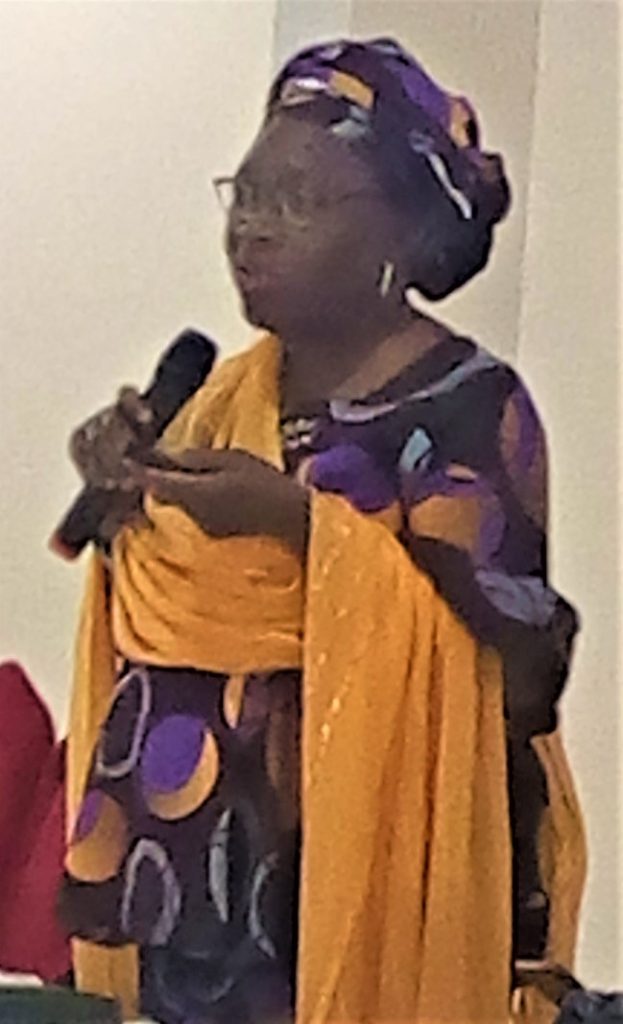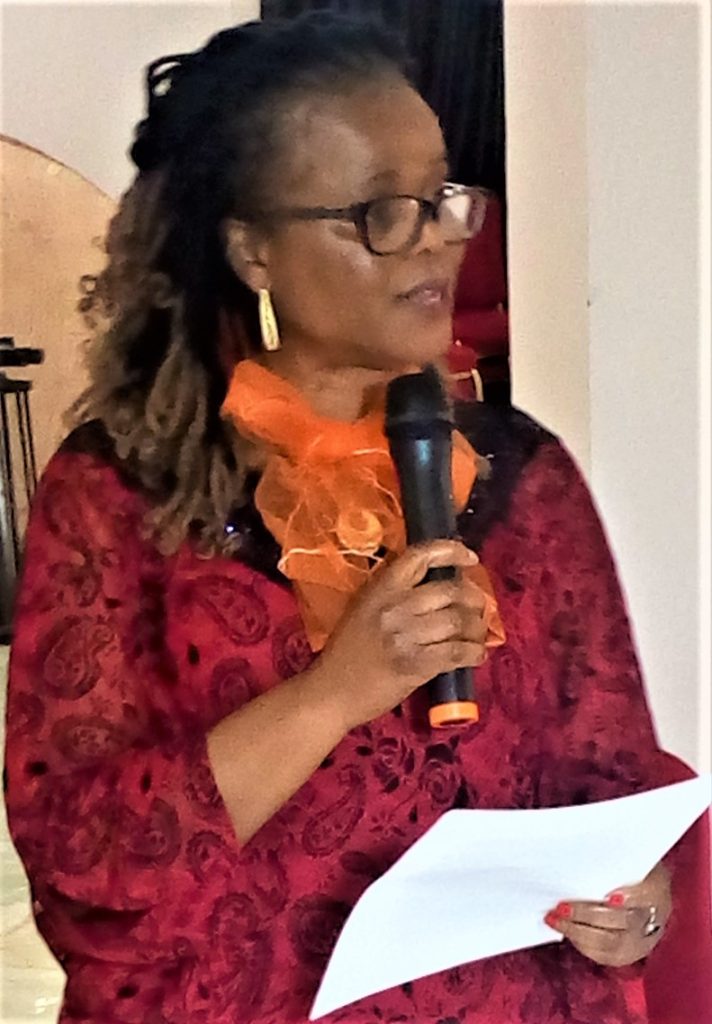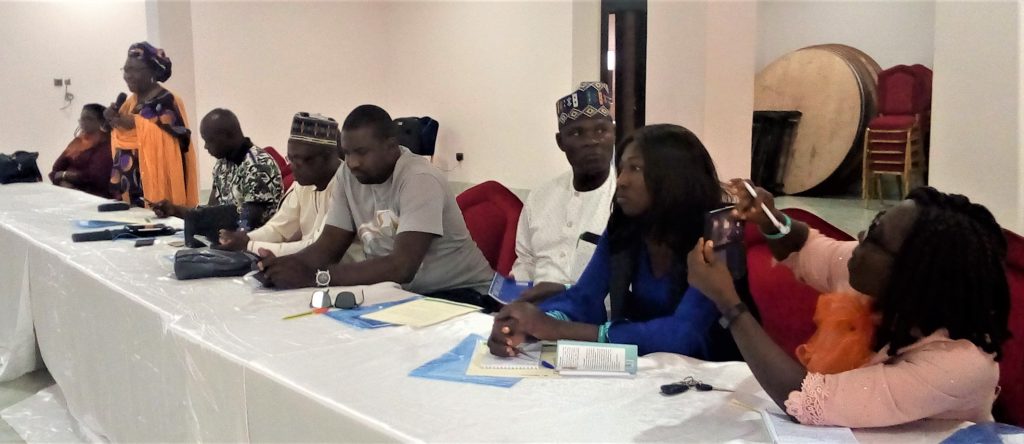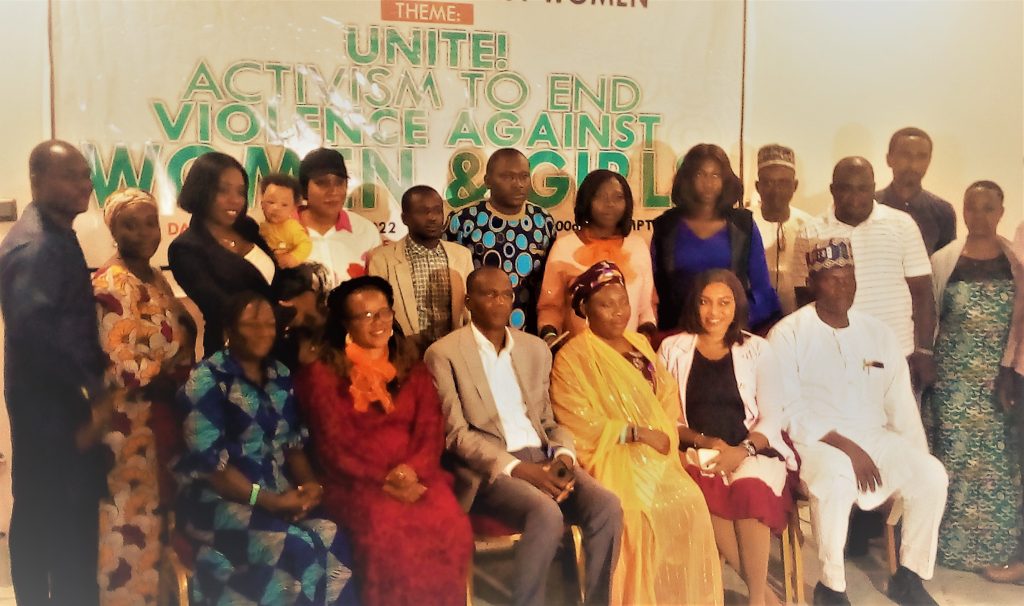16 Days of Activism Against Gender Based Violence is an annual international campaign that kicks off on November 25 (International Day to End Violence against Women) and runs until December 10 (World Human Rights Day). This global campaign is held to call for more action to prevent and end violence against women by breaking down barriers that rob them of their power, reports Ralph Madugu
In Jos, Plateau State, Women for Women International, WFWI, an international non-profit humanitarian organization with its headquarters in Washington DC, held a media parley with the theme “Unite! Activism to End Violence Against Women and Girls,” as part of activities to mark this year’s edition of the 16 Days of Activism on the elimination of violence against women.

It was also aimed at seeking collaboration with the media in creating more awareness and sensitizing the public to understand issues surrounding gender –based violence and break down barriers that most often rob women of their power in society.
In this respect, Women for Women International has been working hand in hand with women in rural communities in Nigeria since 2000.
Country Director Women for Women International, Mrs. Bukola Onyishi, disclosed that for over 30 years, 16 days out of 365 days were dedicated to creating awareness about eliminating violence against women worldwide.
Represented by the Social Empowerment Manager, WFWI, Antonia Olieh, Mrs. Onyishi, painted this picture: “Sadly, 1 in every 5 women still faces sexual or physical violence. The most recent estimates showed that, on average, a woman or girl is killed by someone in her family every 11 minutes. It is alarming, frightening, and crazy.

“You are in this room today as a journalist because Women for Women International Nigeria solicits for your collaboration in creating more awareness and sensitizing the citizenry to understand violence against women.”
Thee WFWI Country Director explained that the event was aimed at enlisting journalists to frequently report issues of violence against women and challenge social norms and behaviors that condone violence against women.
She added that the event was also to advocate for the strengthening of mechanisms to prevent and eliminate violence, harassment, threats, intimidation and discrimination against women’s human rights defenders and women’s rights advocates/activism in line with international standards.

While soliciting for the cooperation of the media, Mrs. Onyishi said, “We need your commitment to ensuring that violence against women and girls stops NOW; we want to reassure survivors that they are not alone, and we know you have the capabilities to do it.
“Perhaps you were not part of the history of the elimination of VAW in the last 30 years. We have that opportunity NOW, so join the crusade to be part of the future.
“A world without violence against women is possible. Together our voices can make a difference.”
The event featured a presentation on Dissemination of Policy Brief in Violence Against Women by the Advocacy Coordinator, WFWI, Mrs. Zainab Gbobaniyi and brought journalists from both private and public electronic and print media.

Highpoint of the event was a brainstorming session during which participants shared experiences on current happenings, what has changed, challenges and proffered possible solutions towards eliminating gender-based violence.
Checks by this magazine revealed that WFWI had been working at the critical intersection of women and conflict and providing skills, knowledge and resources. It had from inception, supported over 80,000 women in 95 communities in 5 states in Nigeria with relevant skills for self-sufficiency towards transforming their lives, families and communities.
In Plateau State, WFWI had worked in 10 local government areas, including Mangu, Pankshin, Bassa, Riyom, Jos East, Jos South, Jos North, Barkin Ladi, Bokkos and Wase.
